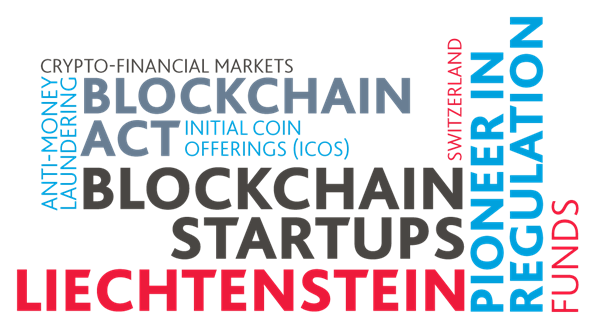Liechtenstein and blockchain: A marriage made in heaven?

Often people ask me how much money they need to set up a fund in Liechtenstein. Indeed doing so is quite a popular move for asset managers and family offices. The regulatory minimum is low compared to other countries: 1.25 million euros. But in my opinion, that’s only one reason to base your fund or open your business in Liechtenstein.
The myriad of others includes a low flat tax, access to European Union markets, and close proximity to the regulator, which means quick regulatory decision making.
In fact, Liechtenstein’s government is a pioneer in regulation, for instance in crypto-financial markets. The country’s Financial Market Authority approved three alternative investment funds for cryptoassets in March 2018: Incrementum Crypto One Fund, Postera Fund and Coinlab Digital Asset Fund.
I would like to share with you reasons I’m convinced about Liechtenstein as an investment destination, and why I’m proud to lead Financial Services for BDO here in this principality of 36,000 people.
Telling the story from the perspective of blockchain companies and why they are coming to Liechtenstein is a good way to explain my point.
Take the case of Liechtenstein vs. Switzerland for blockchain startups. The two countries have a customs union and cooperate on many fronts. But we’re also competitors, and lately I have observed that Liechtenstein, is putting the cryptocurrency center of Zug, Switzerland, to the test.
In fact, a number of my own clients are actively looking into setting up cryptocurrency-related businesses in Liechtenstein, and I hear them weighing the differences between Liechtenstein and Switzerland, where I’m from.
We frequently receive feedback about initial coin offerings (ICOs) from our customers. They talk about their experiences s in Switzerland, mostly in the Crypto Valley of Zug. They say it’s difficult to get support for all their ICO needs from Swiss banks, even though Swiss banks say they offer that support. In Liechtenstein, on the other hand, those services are easier to come by.
Setting up a crypto-currency firm is not an easy task, since business models are emerging and are extremely complex, and many countries are wary of the hype around them.
In Liechtenstein, new business models involving digitization and fintech can be tested directly with the regulator in its own regulatory laboratory, which means company founders can get fast feedback on the regulatory framework. The regulatory authority tries to help businesses get off the ground. As it says on its website, “Innovative business models often don’t fit into the traditional regulation categories.”
According to a Swiss business newspaper, the international crypto exchange Bitfinex was looking to Switzerland as a location for its headquarters, but now Vaduz, the capital of Liechtenstein, is at the top of its list. The report said it was likely due to the predictable legal environment for cryptocurrencies that Liechtenstein is creating. Other companies have already set up shop, such as The Liechtenstein Cryptoassets Exchange, which launched in July.
Liechtenstein is set to be one of the first countries to pass a Blockchain Act that would help blockchain companies better integrate with traditional fiat-based banking services, for instance by clarifying know-your-customer (KYC) rules and anti-money laundering rules. Observers expect the law to be passed in the last quarter of 2018.
In my opinion, the way in which Liechtenstein has worked at – and succeeded at – attracting cryptocurrency startups is an excellent example of our responsive regulators and the supportive business environment.
For me, the case for investment in Liechtenstein speaks for itself.